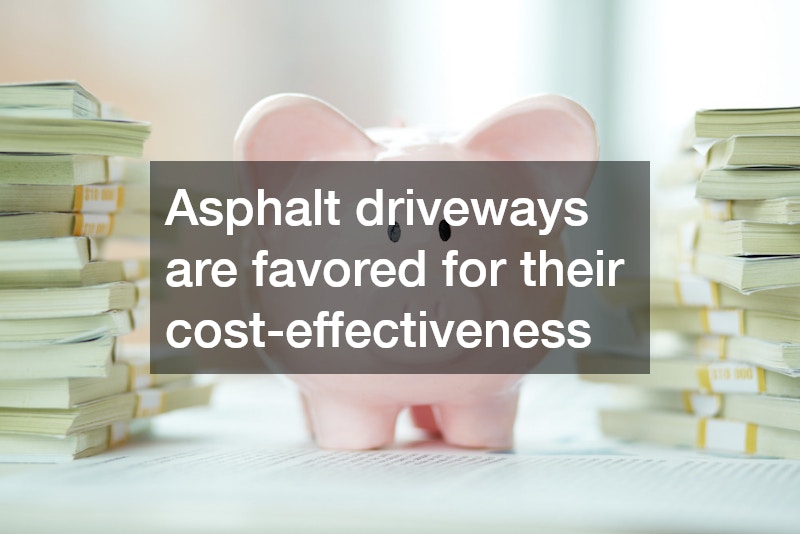
Choosing the right driveway for your home is a crucial decision that affects both the aesthetics and functionality of your property. The driveway is often the first aspect noticed by guests or potential buyers, thereby influencing your home’s initial impression. A well-designed and properly chosen driveway can elevate curb appeal, increase property value, and provide lasting convenience. On the other hand, selecting the wrong material can lead to costly maintenance, faster wear, and mismatched design.
Factors such as budget, climate, and maintenance requirements must be weighed carefully to decide the most fitting option for your needs. Beyond functionality, your driveway also plays a role in your daily lifestyle—whether you want something low-maintenance, highly customizable, or cost-effective.
By understanding the pros and cons of different materials and learning about upkeep demands, homeowners can make an informed decision that aligns with both long-term goals and immediate needs.
What are the different types of driveway materials?
Concrete driveways are a popular choice due to their durability and ability to withstand heavy usage. This type of driveway is relatively easy to maintain, requiring sealing every few years to prevent cracks and extend its lifespan. An added benefit is its versatility in design; you can personalize concrete driveways with stamping or coloring to complement your home’s exterior. Some homeowners even use decorative finishes to replicate natural stone, brick, or tile. While the upfront investment may be higher compared to other materials, concrete can last several decades when properly maintained, making it a long-term investment.
Asphalt driveways are favored for their cost-effectiveness and speedy installation process. Generally, they are less expensive than concrete options, requiring less initial investment. Asphalt’s sleek black surface also provides a clean, classic appearance that complements most properties. However, they tend to need more frequent maintenance, such as resealing every few years, to preserve their appearance and functionality. Asphalt is also more flexible than concrete, which makes it less prone to cracking in colder climates, but it can soften or become damaged under extreme heat.
Gravel driveways offer a rustic look and are typically the least expensive option to install. They are quick to lay down, making them a favorite for large driveways or rural areas where aesthetics are less of a concern. Gravel also offers natural drainage, reducing the risk of water pooling or flooding. Despite their affordability, they require regular upkeep to manage gravel displacement and ensure proper drainage. Homeowners should be prepared for the occasional uneven surface or loose stones that can scatter into lawns or gardens. Still, for those seeking a natural look and low upfront cost, gravel remains an appealing choice.
How to determine the best driveway for your home?
Your local climate plays a crucial role in determining the best material for your driveway. For instance, concrete driveways can develop cracks in regions with extreme temperature fluctuations, while asphalt can become soft in high heat. Gravel may be displaced during heavy rainfall or snow, making it crucial to choose materials that can withstand local weather conditions. If you live in an area with long winters, asphalt may be better suited due to its flexibility, whereas gravel might be ideal for regions with consistent rainfall because of its natural drainage properties.
Cost is always a significant factor when choosing driveway materials, including initial installation expenses and long-term maintenance costs. While asphalt driveways may require more frequent maintenance, they are often cheaper to install than concrete. Gravel driveways provide a budget-friendly option but may require regular replenishing and grading to maintain their appeal and functionality. Concrete, although more expensive upfront, often pays for itself in the long run due to its lifespan and minimal upkeep requirements compared to other options.
The driveway should also seamlessly integrate into your home’s architectural style and surrounding landscape. Concrete driveways offer diverse design possibilities and can mimic high-end materials through stamping and coloring techniques. Conversely, gravel or asphalt may offer less in terms of design customization but can still be selected in colors and textures that enhance your property’s curb appeal. For homeowners who prioritize design, concrete may be the best match, while those focused on simplicity and functionality may find asphalt or gravel to be more practical.
What are the maintenance requirements for various driveways?
To extend the longevity of a concrete driveway, sealing it every two to five years is essential to prevent water infiltration and cracks. Regular cleaning with a power washer will help keep stains and debris at bay, helping maintain its appearance. Minor repairs, like filling small cracks with a concrete filler, can prevent larger structural issues in the future. Although maintenance demands are minimal, homeowners should monitor for shifting or settling, especially in climates with significant freeze-thaw cycles.
For asphalt driveways, periodic resealing is crucial to prevent surface degradation from exposure to sunlight and moisture. Cleaning oils and gasoline spills is necessary to avoid stains and deterioration of the material. Patching small potholes promptly can help maintain a smooth surface and extend the pavement’s overall life span. Homeowners should also budget for resurfacing every 10–15 years, depending on usage and local climate. While asphalt does require more hands-on care than concrete, its lower upfront cost often balances this over time.
Selecting the right driveway involves balancing factors like climate adaptability, budget constraints, and aesthetic considerations. Each type of driveway material—concrete, asphalt, or gravel—offers unique benefits that cater to specific needs. Concrete provides durability and customization, asphalt delivers affordability and flexibility, and gravel offers a natural look at the lowest upfront cost.
By thoughtfully evaluating these aspects, maintenance requirements, and long-term goals, homeowners can choose the most suitable driveway that harmonizes with their home’s overall design and function. With the right decision, a driveway becomes more than just a parking space—it enhances daily living, boosts curb appeal, and contributes to the lasting value of the property. Get in touch with your local professional driveway contractors today.




